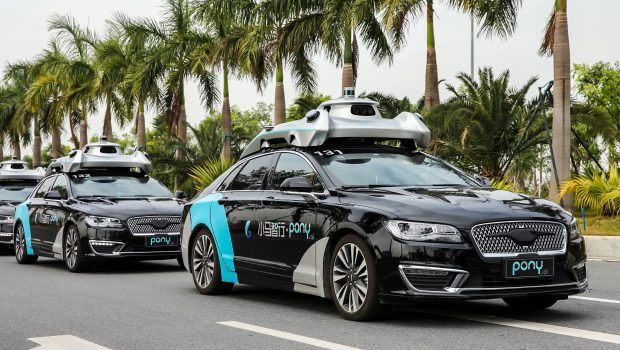Artificial Intelligence Within the Automotive Industry
When it comes to the automotive industry and the role of artificial intelligence within it, your mind will begin to conjure up exciting thoughts.
Whether images of self driving vehicles or driver monitoring, AI can impact and develop our experience when behind the wheel.
We will be taking a look at how artificial intelligence is being used within cars, the current developments taking place and the future landscape of artificial intelligence within the automotive industry.
What is Artificial Intelligence and How is it Primarily Used?
Artificial Intelligence, AI for short, has an array of different meanings. Artificial intelligence for many is most commonly seen as a technique that enables computers to mimic human behavior.
For other people, however, they see AI through the ability to create products that run on Machine Learning.
Machine Learning is best seen in machines that are created to improve experiences and aid us within our everyday tasks. Another form of AI, and that is Deep Learning. A section within Machine Learning, Deep Learning is allowing us to create multi-layer neural networks.
For those still unsure of what artificial intelligence is, examples of AI can be seen with self-driving cars, robots and smart phones. Also best seen in drones, smart home devices and social media feeds, artificial intelligence is broad and can be seen in all areas of our routine.
Current Examples of Artificial Intelligence in Cars
When it comes to artificial intelligence within the automotive industry, AI can help keep us connected while safe when driving on the roads. A powerful tool, artificial intelligence within the automotive industry promises to be big business and is believed to exceed $10.73 billion dollars by 2024.
But for those who are unsure what artificial intelligence in cars is and how AI is used in cars, let us answer your questions. The growth of artificial intelligence in cars can be best seen in automated vehicles. From developing the ability of the vehicle to experience human perspectives such as sensory, vision and sound to automated vehicles. AI in cars is seen through the use of self-driving vehicles to the rise of 360 degree perception technology. When it comes to AI in cars experienced throughout our daily lives, with automatic braking, parking sensors as well as lane departure warning being common features in modern cars.
Driving Assistance in Cars
A common feature when it comes to artificial intelligence within cars is through the creation of driving assistance. With the future aim of driving assistance to create driverless cars, the completion of fully driverless vehicles is still a long way off yet. By allowing the driver to act as an assistant, AI can improve and develop a number of safety features within the car.
With automated parking, active cruise control, blind spot detection and forward collision warning, driving assistance has been designed to help assist, develop and improve our experience when behind the wheel.
Driverless Automobiles
Another top artificial intelligence, that has yet to become fully established and perfected is the creation of driverless automobiles. Turning the driver into the assistant, the driver becomes a passenger in their car through the click of one button.
On the horizon, Tesla has been working hard to take AI technology to a whole new level.
Through the development of software, this technology allows the vehicle to communicate, helping to run the vehicle and keep it moving on the road.
With the goal to remove the drivers responsibility, it is thought that through the emergence of driverless vehicles, the roads will become safer, as well as being stress free.
The question of how do driverless cars work, is a question that should be answered. Just like with our mobile phones, driverless cars will be equipped with GPS devices and specialised aerials. These aerials will help the vehicle to navigate on the roads to avoid hazards that may occur. Along with gathering this data, data from other technology such as cameras, Radar and LiDAR will determine and work out the safest route available. Through technology and the rise in which it is developing, driverless cars will be able to operate and respond to any incidents that occur when out on the roads.
Connected Vehicles
Just like with smart, IoT devices within our homes and offices, artificial intelligence within vehicles can be seen through the connection of AI cars.
Able to connect through the cellular network, GPS, but also through WIFI connections, connected vehicles through the addition of artificial intelligence is believed to create huge industrial, economic and social benefits. Helping to ease on congestion, but also to improve your driving times, connected vehicles can plan your route, making sure that your journey consists of not stopping at any red lights.
When it comes to best describing what connected vehicles are, connected vehicles are able to talk to one another electronically through the use of infrastructure.
Along with aiding our drive and reducing the amount of traffic on the roads, connected vehicles are also hoped to be able to offer assistance from within the car. Whether as voice navigators, personal assistants, telematics and predictive maintenance, the future of connected vehicles within the AI industry, looks to be promising.
Vehicle Smart Manufacturing
Another exciting way in which artificial intelligence is affecting the motoring industry and that is through vehicle smart manufacturing. Helping to speed and improve the efficiency of the production line, it has been said by Capgemini, that by 2022 more than 24% of vehicle plants will be turned into smart factories.
A broad concept, when it comes to describing smart manufacturing, this area is best described as the development of smart technologies “enablers” to optimise the manufacturing process and increase profits. With a selection of different areas, included within smart manufacturing in vehicles, is: artificial intelligence, robots, condition monitoring, cyber security, as well as, blockchain manufacturing and IoT.
Smart manufacturing promises exciting things for the motor industry, with 49% of factories already signed up to help kickstart these new smart factories.
Helping to simplify the process surrounding the production of cars, manufacturers will have time to test new possibilities, as well create higher profits.
In Vehicle Infotainment Systems
Also referred to as in car entertainment, infotainment systems are a common occurrence in many modern vehicles. No longer a CD and radio player inserted into the vehicle’s dashboard, instead the IVI can deliver through a selection of vehicle systems both entertainment and information. Whether the information be delivered through the audio and video interfaces, the control elements, such as touch screen displays and the button panels and voice commands.
A growing industry and an industry which is likely to see a huge boom, In Vehicle Infotainment will improve and develop as the consumers’ desires grow.
Another factor that will likely be the cause of growth within the development of IVI and that is the increase in vehicle production, technology advances and demand for luxurious cars.
This artificial intelligence device gets its name not just from the ability to present the driver with entertainment, but also with important information, infotainment.
There you have it, the many different ways that artificial intelligence can be used within the automotive industry. From helping drivers to park their vehicles, assisting in creating the fastest route to work, to the exciting potential of driverless vehicles, the future of AI within the motor industry promises to be exciting.
Not just reserved for the elite, as the advances within the motor industry grow, so will our experience and enjoyment when using artificial intelligence.
With the motor industry putting money into the creation of smart factories and large companies making advances in driver assistance and driverless vehicles, the future of driving is not far off.
Allowing us to take our foot off the gas and sit back and relax when behind the wheel, how you choose to embrace the future of artificial intelligence in the automotive industry, is up to you.
Do you have experience of driving an AI vehicle, or perhaps your car already has automated parking and automatic emergency braking? Comment below and share with us your thoughts on artificial intelligence within the automotive industry.
















